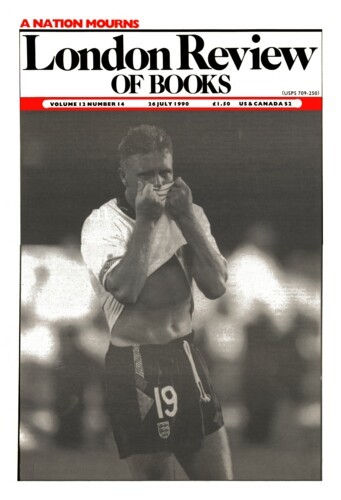Soliloquy
‘We die together though we live apart’
You say, not looking up at me,
Not looking up.
‘I mean to say,
Even were we actually to die in unison,
Evaporating in each other’s arms,
We’d still have ended up – well, wouldn’t we? –
Dying for a taste, our first and last,
Of unaloneness:
we’d have dreamed,
Dreamed up a day utterly unclouded
By the dread that not quite yet but soon,
Although, please God, not very soon,
We will indeed be whispering
Wretchedly, in unison, your breath on mine:
I might as well be dead,
Or we might. Do you follow? Are you
With me? Do you see?’
Again
That dream again: You stop me at the door
And take my arm, but grievingly.
Behind you, in the parlour, I can see
The bow of a deep sofa, blanketed in grey,
And next to it, as if at harbourside,
A darker grey, rough-sculpted group of three.
Three profiles sombrely inclined,
Long overcoats unbuttoned, hats in hand:
Night-mariners, with eyes of stone,
And yet the eyes seem stricken.
Is it that they too can hardly bear
What’s happened? What has happened? Who?
At Evening
Arriving early, I catch sight of you
Across the lawn. You’re hovering:
A silver teaspoon in one hand
(The garden table almost set)
And in the other, a blue vase.
For the few seconds I stand watching you
It seems half-certain you’ll choose wrong
– Well, not exactly wrong, but dottily,
Off-key. You know,
That dreaminess in you we used to smile about
(My pet, my little lavender, my sprite),
It’s getting worse.
I’d talk to you about it if I could.
The Garden
This garden’s leaning in on us, green-shadowed,
Shadowed green, as if to say: Be still, don’t agitate
For what’s been overgrown –
Some cobbled little serpent of a path,
Perhaps, an arbour, a dry pond
That you’d have plans for if this place belonged to you.
The vegetation’s rank, I’ll grant you that,
The weeds well out of order, shoulder-high
And too complacently deranged. The trees
Ought not to scrape your face, your hands, your hair
Nor so haphazardly swarm upwards to impede
The sunlit air you say you need to breathe
In summertime. It shouldn’t be so dark
So early.
All the same, if I were you,
I’d let it be. Lay down your scythe. Don’t fidget
For old clearances, or new. For one more day
Let’s listen to our shadows and be glad
That this much light has managed to get through.
Send Letters To:
The Editor
London Review of Books,
28 Little Russell Street
London, WC1A 2HN
letters@lrb.co.uk
Please include name, address, and a telephone number.

